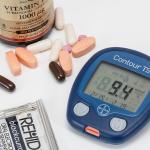“I used to think that the brain was the most wonderful organ in my body. Then I realized who was telling me this.”
Emo Philips, American Comedian
diabetes
When an unpublished study morphs into a health headline, you can pretty safely assume what you are about to read can be taken with a huge pinch of salt.
Most popular news stories about diet soda follow a predictable formula that goes as follows.
Stress alters our glucose metabolism, sometimes pushing the phenotype towards a more insulin resistant, diabetic, profile.
Vascular surgeons have an intimate acquaintance with diabetes and its complications.
Like a preview reel at the movies, a new paper in Nature Medicine provides a teaser for how precision medicine might one day work; like all good previews, it raises many questions and leaves you wanting more.
Promising work just published in Nature Medicine especially offers hope to chronically ill patients battling drug-resistant infections while most compromised with weakened im
The rise in obesity and diabetes has many causes, genetic, lifestyle, and of course, our dietary choices especially a perennial villain, sugar.
The headlines are rampant lately about “a mysterious and deadly fungal infection..spreading across the globe” that identifies multidrug-resistant yeast, Candida auris, as a “new fungal superbug.” And, as is common with such alarming heade
Charles Piller has written a very interesting article on pre-diabetes, the link is at the bottom, and is worth the 10 minutes.












